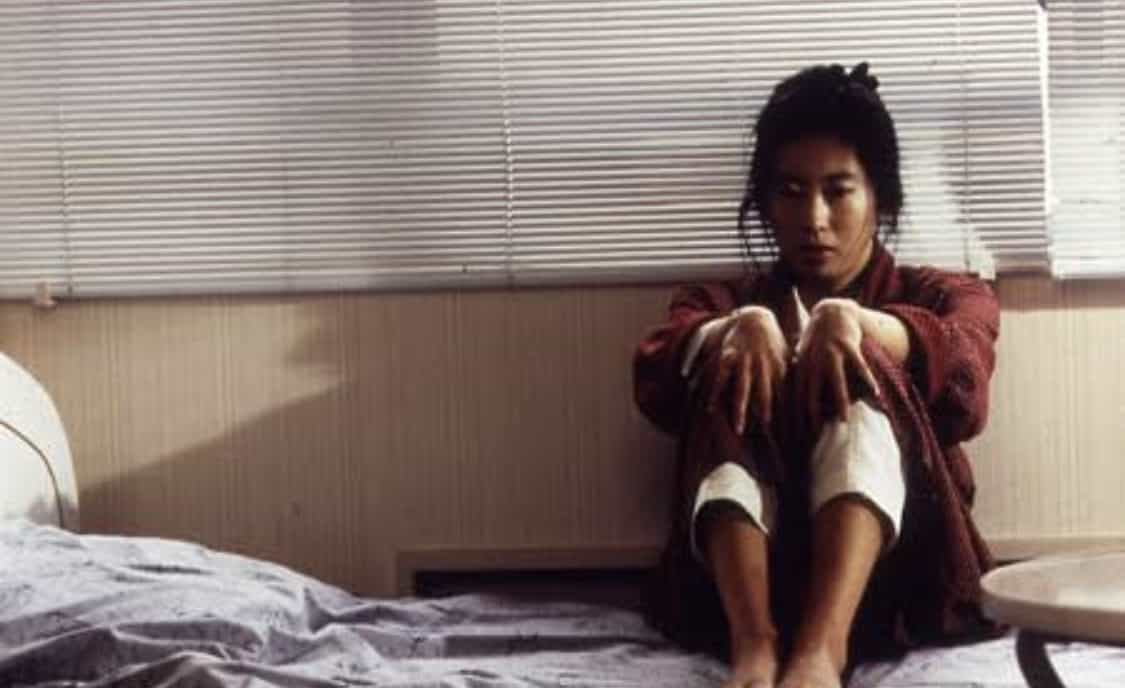As K-Pop continues to gain popularity around the world, more documentaries about popular stars and projects such as Twice, Blackpink, BTS, and others continue to be made. Beyond dealing with a similar topic, many of these movies share a few important similarities, namely the fame of their subjects and the fact that they function more as an advertisement of the band or artist at hand than anything else. With “9 Muses of Star Empire”, the documentarian Lee Hark-Joon chooses a very different approach, one that aims to show a more authentic part of the K-Pop industry and the people in it.
9 Muses of Star Empire is Streaming on MUBI
“9 Stars of Star Empire” follows the nine member of the female idol group Nine Muses from the small production company Star Empire as they rehearse, record, and perform the song “No PlayBoy” which they hope will shoot them into stardom but for numerous reasons, doesn't manage to click with the audiences. As the frustration and exhaustion grow, the project sees member changes, bombed performances, and a lot of scolding from everyone in their production company.
Lee Hark-Joon chooses a very unobtrusive approach to shooting “9 Muses of Star Empire”, shooting the nine girls training, resting, being scolded, and as a whole, degraded in a somewhat unobtrusive manner. On their part, too, they act as if he is not there, possibly because he seems to have followed them for a very long time. This gives us the opportunity to see the idol industry in a much more direct way – most of the time they are without makeup, wear normal clothes, and behave possibly more authentically than any other documentary on the subject in recent history.

The film presents a very negative side of the K-Pop industry and entertainment industry in Korea in general. Lee shows them as just that – an industry whose one and only goal is making money. There is no desire to create art or anything like that – everything they make is a product and nothing else. We see this through the way the managers, stylists, and directors analyze everything to the smallest detail with the intention of making a more sellable and likable product from the nine girls.
And they truly are treated like products, both during the arduous rehearsals but also in the day-to-day dealings of the band. Towards the middle of the documentary, one of the members decides to quit, making the producer go to an agency and choose another member from something like a roster in a manner that reminds one of choosing some inanimate product like dinner or maybe a computer. The matter-of-factness in which Lee shoots the scene presents the producer as sociopathic or even downright evil. It's like he sees these humans who try their best to become famous as nothing more than cogs in a money-making machine or, at best, an investment.
It's not only the producer who seems not to see the girls as human. It's everyone in Star Empire. Their managers and stylists, even the cameramen tell them repeatedly they can't sing or dance, that they are not good, and most importantly, that it's their fault they haven't become as popular as Miss A, for example. They are always blamed and lectured for their shortcomings and the producers never acknowledge the fact that it is also their fault the project is failing. However, the onus of everything is put on the slender shoulders of these nine girls who seem to be so inundated to the constant barrage of critique that they listen with a mix of detachment and resignation.
Another way in which we see the dehumanization of the women is the sheer repetition that constitutes their practice routine. They do the same song and dance for what seems like forever. They repeat the movements again and again in a way that reminds the viewer of the work in a factory, from which these girls have supposedly escaped by becoming idols. From another perspective, the focus on breaking the body and mentality of the girls to the point where they are like robots who follow orders is very reminiscent of the army, as it has been eloquently explained by Gooyong Kim in his book “From Factory Girls to K-Pop Idol Girls”. The amount of sweat and tears they shed while preparing for a single failed song is anything but awe-inspiring. Rather, it is sad and depressing. Speaking about depression, in a short scene, a psychiatrist speaks about the fact how all members are very depressed and to be honest, it shows on their faces. Dropping, empty, and exhausted, they seem to have reached a level of detachment from the body that again, is reminiscent of severely exhausted soldiers, or even maybe of traumatized cult members. Their eyes show a complete detachment and basically no will to live.
And this all brings us to one of the most pertinent questions that comes to the mind of the viewer, namely why exactly do they want to subject themselves to something as dehumanizing, exhausting and depressing as is the K-Pop industry. Though they have debuted and are somewhat known, participating in big concerts, variety shows, and playing for the army, none of them seems to be reaping any of the benefits of fame – they seem to be living in small houses, be constantly under stress and not that rich or happy at all. So, why they do it? Well, the movie does not give us any answer, nor do the girls themselves. If anything, for the majority of the time they ask themselves this. Judging from the numerous changes in the band's lineup, it seems like they never find the answer.















